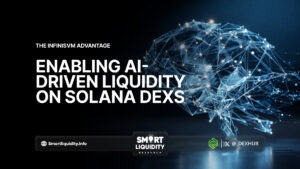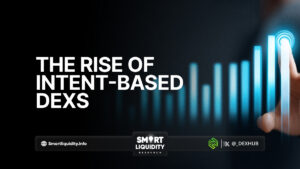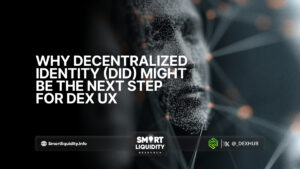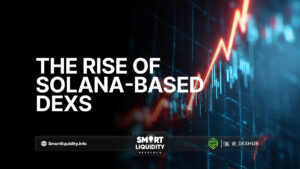The Role of DEXs in Tokenizing Real-World Assets


How decentralized exchanges are unlocking liquidity and redefining ownership in the real world?
In recent years, the conversation around blockchain technology has shifted beyond cryptocurrencies and DeFi, toward something more tangible: real-world asset (RWA) tokenization. From real estate and art to commodities and government bonds, tokenizing physical assets is being heralded as a game-changer in making global markets more efficient, inclusive, and transparent.
But there’s a critical piece of infrastructure enabling this shift that often goes underappreciated: Decentralized Exchanges (DEXs). These blockchain-native marketplaces are becoming central to unlocking the full potential of RWAs. Here’s how.
Understanding Real-World Asset Tokenization
Real-world asset tokenization involves converting ownership rights of physical or traditional financial assets into digital tokens on a blockchain. These tokens can represent anything — a fraction of a luxury apartment in New York, a kilo of gold, or shares in a private equity fund.
By doing this, tokenization introduces:
Fractional ownership
Improved liquidity
Global accessibility
Immutable ownership records
However, tokenization only solves part of the puzzle. Once you’ve tokenized an asset, where can it be traded, and who can access it?
That’s where DEXs come in.
What Makes DEXs Essential to RWA Liquidity?
Unlike centralized exchanges (CEXs), DEXs operate without intermediaries. Instead, they use smart contracts and liquidity pools to facilitate peer-to-peer trading. This decentralized architecture is especially important for tokenized RWAs, which often require more transparency, programmability, and composability than traditional assets.
Here are four key reasons DEXs are vital for RWA markets:
1. Trustless and Transparent Markets
RWAs often face regulatory and trust-related barriers. DEXs mitigate these concerns by offering transparent smart contract-based trading mechanisms. Every trade, order, and transaction is recorded on-chain, building an auditable trail that boosts investor confidence.
2. 24/7 Global Accessibility
DEXs are always online. This global, non-stop availability democratizes access to tokenized assets, allowing retail and institutional investors from anywhere to trade without the constraints of traditional market hours or regional gatekeeping.
3. Liquidity Bootstrapping via DeFi
DEXs can connect tokenized RWAs to the broader DeFi ecosystem. For example, tokenized real estate could be pooled in a yield farm, used as collateral in lending protocols, or integrated into index products — increasing use cases and liquidity far beyond simple buying and selling.
4. Composability and Interoperability
DEXs thrive in ecosystems where protocols interact freely. A tokenized carbon credit on Ethereum could be traded on a DEX, then immediately used in a DeFi application for staking or governance. This level of composability is something traditional finance simply cannot match.
Challenges DEXs Still Face in RWA Integration
Despite their promise, integrating RWAs into DEXs isn’t frictionless.
Regulatory Uncertainty: Tokenized RWAs often fall under existing securities or commodities laws, which can complicate listing on permissionless DEXs.
KYC/AML Compliance: DEXs are typically permissionless, but RWAs often require identity verification — a gap that needs to be addressed with new hybrid or compliant models.
Price Oracles and Valuation: Accurately pricing illiquid or physical assets on-chain requires reliable oracles — an evolving area still prone to manipulation or latency.
Custody and Legal Claims: Holding a token does not always mean owning the underlying asset. Legal infrastructure must mature to enforce real-world claims linked to tokens.
The Road Ahead: Compliant DEXs and Institutional Onboarding
To bridge these gaps, the next generation of DEXs will likely lean toward regulated DeFi or “ReDeFi” — platforms that preserve decentralization while integrating KYC, whitelisting, and legal enforceability for institutional-grade assets.
We’re already seeing projects like Centrifuge, RealT, and Ondo Finance making moves in this space, along with emerging DEXs that prioritize RWA onboarding with proper compliance frameworks.
Final Thoughts
As the tokenization of real-world assets becomes more widespread, decentralized exchanges will be the primary venue for their distribution, trading, and integration into the wider DeFi economy. The synergy between RWAs and DEXs holds enormous potential to democratize investing, unlock new sources of liquidity, and bring the benefits of blockchain to everyday finance.
While challenges remain, one thing is clear: DEXs aren’t just reshaping how we trade digital assets — they’re redefining how we own the real world.
REQUEST AN ARTICLE
Disclaimer:
This article is for informational purposes only and does not constitute financial advice. Readers are encouraged to conduct their own research and consult with a financial professional before making any investment decisions.




